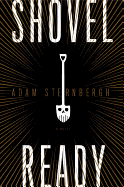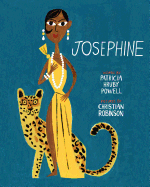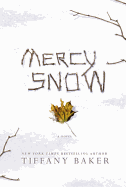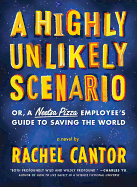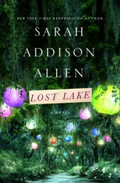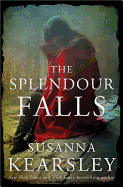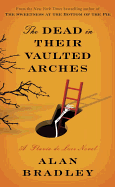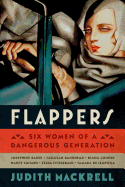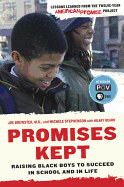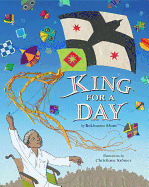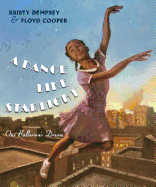Friday, January 17, 2014
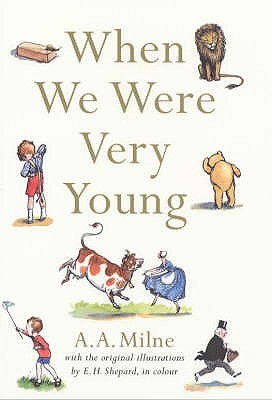 Winnie-the-Pooh is analogous with childhood. With his friend Piglet and the other inhabitants of the Hundred Acre Wood, Pooh discovers how things work. But the first real introduction this reader had to the work of A.A. Milne--whose birthday is tomorrow--was through his poem "Disobedience."
Winnie-the-Pooh is analogous with childhood. With his friend Piglet and the other inhabitants of the Hundred Acre Wood, Pooh discovers how things work. But the first real introduction this reader had to the work of A.A. Milne--whose birthday is tomorrow--was through his poem "Disobedience."
While we are in the throes of childhood, we think only children can disobey. Adults are always right. But for James James Morrison Morrison Weatherby George Dupree, it's quite another story. Milne flips the idea of who's in charge and taps into the truth of what it's like to be three: "James James/ Morrison Morrison/ Weatherby George Dupree/ Took great/ Care of his Mother,/ Though he was only three./ James James said to his Mother,/ "Mother," he said, said he;/ "You must never go down/ to the end of the town,/ if you don't go down with me."
That poem lived within me. I loved the repetition, the beat, the power James held. I loved the way Milne asked us--"(Now then, very softly)"--at the end, to repeat the first stanza, as if in code: " J.J./ M.M./ W.G.Du P./ Took great/ C/0 his M*****/ Though he was only 3." It was emboldening: like James, we could take the reins. Only much later do we come to understand this as a poem about separation anxiety in which the child refuses to be anxious. Milne turns the tables and empowers the child, who instructs the parent.
Winnie-the-Pooh, too, cuts through childhood fears because Pooh, Piglet and their friends share them. You are not alone, Milne tells us. One of the great exchanges of all time occurs in The House at Pooh Corner, when Piglet sidles up to Pooh from behind. " 'Pooh!' he whispered. 'Yes, Piglet?' 'Nothing,' said Piglet, taking Pooh's paw. 'I just wanted to be sure of you.' " Thank you, Alan Alexander Milne, for telling us we are not alone. And: Happy Birthday! --Jennifer M. Brown
The Visionist
by Rachel Urquhart
Set amid the ecstatic throes of America's Second Great Awakening in the 1840s, Rachel Urquhart's smoldering debut, The Visionist, follows teenaged Polly Kimball as she runs from the law and her past after setting fire to the family farmhouse with her vile, abusive father inside. Finding refuge in the City of Hope, a nearby Shaker community, Polly learns that, though she may escape the fallible judgment of mankind, God's wrath against wickedness burns eternal. To complicate matters, all eyes turn intently toward Polly when she begins manifesting angelic visions and proclamations believed to be sent from the Shaker prophetess Mother Ann Lee.
Rich with history and mystical intrigue, Urquhart's American gothic is capable of sending chills across your skin one moment, then warming your heart the next. Torn between her friendship with Sister Charity and the machinations of Elder Sister Agnes, Polly's heavenly visions may very well crumble under the cruelty of her tremendous guilt.
Like Nathaniel Hawthorne's haunted novels, The Visionist tests a community's faith and devotion as expertly mounted, suspenseful threats grow. The story is as eerie as it is heartrending, weighing miracle against coincidence, deviation against sincerity, with the remnants of one rural family hanging in the balance. The Visionist will have you holding your breath until the final, magnificent revelation. --Dave Wheeler, bookseller, The Elliott Bay Book Co., Seattle, Wash.
Discover: In Rachel Urquhart's smoldering debut novel, a young woman runs from her scorched past into a reverent community convinced of fire and brimstone.
Mercy Snow
by Tiffany Baker
Tiffany Baker's third novel, Mercy Snow, juxtaposes the good and evil, the haves and the have-nots of a struggling mill town, and explores the simmering mysteries linking them all. The people of Titan Falls, N.H., hate the polluted muck of the Androscoggin River, and they hate the Snow clan. They have to put up with the river--it's vital to the operation of the paper mill that drives the local economy--but nobody has any use for Mercy Snow and her kin.
The novel opens with a school bus tragedy the town is eager to believe was caused by Mercy's ex-convict brother, Zeke. With Zeke on the lam, teenage Mercy and her younger sister are alone in the beat-up RV they call home. Meanwhile, prim and proper June McAllister, the wife of the powerful mill owner, incites the town against the three orphan Snows, hoping to deflect any questions about where her husband was that night. Reclusive Hazel Bell defies the town and hires Mercy to help tend her sheep. It's through Hazel's friendship that Mercy finds an avenue stealthily to investigate the accident and quietly make positive changes in Titan Falls.
Emotional complexities and small-town biases clash throughout the novel. As in her earlier works (The Little Giant of Aberdeen County etc.), Baker imbues her heroine with magical homeopathic skills. Mercy is a fiercely determined and wise protagonist who, as her sister says, "taught them that sorrow flowed in this life, but so did sweetness in equal measure." --Cheryl Krocker McKeon, bookseller, Book Passage, San Francisco
Discover: An outcast teenage girl takes on the biases of a struggling mill town in an effort to create a safe home for her siblings.
A Highly Unlikely Scenario, or, a Neetsa Pizza Employee's Guide to Saving The World
by Rachel Cantor
Imagine a totalitarian society in which fast-food restaurants have become the guiding force in everyone's lives. There's a glorious Leader, cameras and listening devices everywhere, and competing fast food chains, like Neetsa Pizza, each with its own political and moral agenda. That's the world of Rachel Cantor's A Highly Unlikely Scenario.
Leonard is a perfect Neetsa Pizza Listener; he covers phone support for the chain, helping clients in pain feel better with the liberal application of coupons and pizza recommendations. When Leonard gets a call from Marco Polo--the actual, 13th-century Marco Polo--he begins to realize he is much more than just an employee, perhaps even a hero meant to save the world.
Leonard is directed by many: in addition to Marco, there's his own long-dead grandfather and the new love of his life, Sally, an enigmatic librarian who leads a group of men and women dedicated to the ideas of Sir Francis Bacon. Leonard takes his nephew Felix along for the adventure of a lifetime, giving the anchor-less hero someone to protect.
Against this backdrop, Leonard and Sally are charged with saving the world by protecting its deepest mystical secrets. The plot rockets along, getting less and less confusing on each page, wrapping up with a satisfying, warm, human conclusion.
With a deft, Vonnegut-like style, Cantor tells a ripping yarn that manages to incorporate themes of Jewish mysticism, corporate identification, pre-destination and human connection in one quirky, deep novel. --Rob LeFebvre, freelance writer and editor
Discover: A fun, meaningful read full of discovery and satire, sure to please fans of science fictional satire.
Lost Lake
by Sarah Addison Allen
During the summer Kate Pheris was 12, she spent a few magical weeks at Lost Lake, a small resort in rural Georgia run by her great-aunt Eby. Fifteen years later, Kate, now a young widow, takes her daughter, Devin, back to Lost Lake for a visit. Adrift after the loss of her husband, Kate falls under the spell of Lost Lake's charm, only to discover Eby is planning to sell the property to a developer. As Kate and Devin settle into the rhythm of life at Lost Lake, Kate wonders if there's a way to save the property--and create a new start for herself and her daughter.
With Lost Lake, Sarah Addison Allen (The Peach Keeper; Garden Spells) takes readers back to her beloved American South, creating a cast of charming, quirky characters--from the French cook Lisette (born mute but perfectly capable of making herself understood) to a few eccentric regulars who come back to the resort every summer. Although the story's action occasionally feels contrived, with a few plot threads left hanging loose at the end, Allen draws a mystical, peaceful world where readers will enjoy spending time. Allen weaves her signature gentle magical realism throughout the story, not controlling the action so much as nudging it along.
Charming, bittersweet and ultimately hopeful, Lost Lake is a treat for fans of Addison's previous novels or those who simply love a good Southern story. --Katie Noah Gibson, blogger at Cakes, Tea and Dreams
Discover: The bittersweet but hopeful tale of a Georgia lake resort and the characters whose fortunes are bound up with it.
Mystery & Thriller
Shovel Ready
by Adam Sternbergh
Among the many adjectives one might use to describe a dystopian noir novel featuring a hired killer, fun is rarely the first choice. But Adam Sternbergh's first novel, Shovel Ready, is a real kick. "Think of me more like a bullet," the protagonist tells a prospective client. "Just point. I'm not FedEx. I don't deliver messages. You need a therapist, that's a different number."
After a dirty bomb decimates Times Square, tourists disappear and the city's inhabitants run for the suburbs--all but the rich in their secure high rises and the poor in their tent camps in Central Park. Sternbergh's near-future New York City is frighteningly credible, and the former garbage collector–turned-assassin Spademan knows it as only a sanitation worker can. He can find a target anywhere from midtown to Brooklyn, where "gangs of men with masks and hammers might still visit your brownstone, but they're not coming to renovate your kitchen." His hardboiled façade masks grief over the loss of his wife in the bomb attack and is easily breached when he hears the story of his pregnant runaway target's mistreatment at the hands of her father.
Sternbergh, a former editor-at-large at New York magazine and current culture editor of the New York Times Magazine, layers elements of sci-fi, Die Hard-like action flicks and noir fiction into the kind of entertaining mashup that seems to suit our world of box-cutter homicides, dirty bombs and virtual heavens. --Bruce Jacobs, founding partner, Watermark Books & Cafe, Wichita, Kan.
Discover: A rocking first novel that's part dystopian sci-fi, part hardboiled noir and part '80s action movie.
The Splendour Falls
by Susanna Kearsley
Having given up on love, Emily Braden--the protagonist of Susanna Kearsley's The Splendour Falls--isn't terribly excited about vacationing with her unreliable cousin Harry in the very romantic town of Chinon, France. But Harry, a history professor, believes Queen Isabelle hid a treasure there, and he convinces Emily to meet him.
Harry never shows up--typical behavior for him, though, so Emily assumes he got sidetracked and starts making friends with the other guests at her small hotel. The group forms an unlikely bond, connecting with one of the more important families in Chinon--the owners of the Clos des Cloches vineyard.
Emily is contentedly playing the tourist at Chinon's famous château and chapel, flirting with the handsome owner of the vineyard, until she finds signs Harry did make it to Chinon after all. If he'd been there, though, why would he leave? Could it be connected to the lost treasure of 13th-century Queen Isabelle? Suddenly suspicious, Emily and some of her fellow guests begin digging into Harry's disappearance, only to uncover far more deadly secrets than they'd ever imagined.
The lovely French setting adds a romantic air to the mystery, as do brief flashbacks to the tragic life of Queen Isabelle. The reader will be rooting for Emily to choose the right man as the romantic tension tightens and the secrets of Chinon are revealed. With The Splendour Falls, Susanna Kearsley has created a gothic romance worthy of Mary Stewart, sure to appeal to romance and mystery readers alike. --Jessica Howard, blogger at Quirky Bookworm
Discover: A tale of a lost French treasure, rife with mystery and romantic tension.
The Dead in Their Vaulted Arches: A Flavia de Luce Novel
by Alan Bradley
It's a somber group gathered at the Buckshaw Halt station platform to meet the coffin of the long-missing Harriet de Luce, but as has been the case in Alan Bradley's five previous Flavia de Luce novels, more than one drama unfolds in The Dead in Their Vaulted Arches as the train arrives.
Eleven-year-old Flavia never knew her mother, who disappeared in a Himalayan avalanche in the early 1940s, when the girl sleuth was still a baby. The return of Harriet's body heightens the family's mourning and will likely finalize the loss of crumbling Buckshaw Manor. Despite her sorrow, however, Flavia's keen inquisitiveness leads her to action.
Who was the tall stranger who fell to his death beneath the train? What was the meaning of the cryptic message he whispered to Flavia? Can she resurrect her mother using her savvy chemistry skills? And what should she do with Harriet's will, discovered when she pried open the sealed coffin?
Flavia is skeptical of the extended de Luce family members who arrive for the funeral, and relies on the ever-faithful Dogger, her father's World War II comrade and loyal Buckshaw staffer, and the local villagers for support. But who is the pilot who swoops onto the estate in her mother's beloved aeroplane? And why was Winston Churchill at the station to honor Harriet? Can it be Flavia's destiny to carry on the de Luce legend?
In another tidy but cliffhanger ending, all is revealed and curiosity piqued for the adventures awaiting Flavia in book seven. --Cheryl Krocker McKeon, bookseller, Book Passage, San Francisco
Discover: The further adventures of Flavia de Luce, girl sleuth, who learns deep family secrets at the funeral of the mother she never knew.
Biography & Memoir
Flappers: Six Women of a Dangerous Generation
by Judith Mackrell
The flapper took on a mythological aspect almost from the moment she first appeared in the 1920s. With her short hair, short skirts and short attention span, she seemed like a new and unsettling breed of woman, another unanticipated aftershock of the First World War.
Judith Mackrell's Flappers explores the phenomenon through the lives of six prominent women who embodied "flapper-ness" for their contemporaries: the African-American dancer Josephine Baker, actress Tallulah Bankhead, Lady Diana Cooper, steamship heiress Nancy Cunard, the Polish-Russian artist Tamara de Lempicka and Zelda Fitzgerald. These women were not the flapper-next-door, though; thanks to both their talents and their excesses, they were tabloid fodder, breaking through the social barriers of gender and class--and, in Baker's case, race--reinventing themselves in the process.
Part of the artistic and intellectual avant-garde, these six women experimented with new social mores and old vices. With no role models to follow, they grappled with the implications of their new independence, with often tragic results. Consequently, Flappers is not short on scandal, but it's ultimately more than a titillating romp through the Jazz Age. Mackrell uses her larger-than-life subjects to illustrate the story of a generation in transition. She skillfully introduces social history on a personal and global scale, from dress reform and birth control to the demographic effects of the war, and ends with a thoughtful consideration of parallels with the youth culture of the 1960s. Sex, drugs and red-hot jazz, anyone? --Pamela Toler, blogging at History in the Margins
Discover: The stories of six of the most legendary flappers from the '20s.
Current Events & Issues
Outsmart Waste: The Modern Idea of Garbage and How to Think Our Way Out of It
by Tom Szaky
"The concept of waste is a luxury." Hungarian-born TerraCycle CEO Tom Szaky first began realizing this when his family left Europe and settled in Canada. He and his father discovered the wealth people were discarding in trash bins, which led eventually to his founding TerraCycle, the international company focused on outsmarting waste.
Taking what he has learned through TerraCycle, Szaky's Outsmart Waste explains the dangers of our current disposal methods, highlights alternative options and illustrates how both businesses and individuals can take steps to reduce and even eliminate waste.
Education is the first step to change, and Szaky educates the reader on the history and economics of waste in easy to understand terms, presenting the concepts of reusing, recycling and upcycling in ways that are both manageable and affordable.
Outsmart Waste is a motivating look at an issue most people avoid. Szaky's enthusiasm is contagious, encouraging readers to make changes. From composting at home and adopting more effective recycling practices to changing buying habits, readers can find something to incorporate into their lives immediately--and start to make a difference in improving safety, saving money and conserving energy.
"The more you value waste," Szaky says, "the better it is for the environment." Outsmart Waste is a powerful first step in helping readers see the value now before we have no other choice. --Jen Forbus of Jen's Book Thoughts
Discover: A viable approach to the world's garbage problem from a man whose life mission is to find a use for all waste.
Parenting & Family
Promises Kept: Raising Black Boys to Succeed in School and in Life
by Michèle Stephenson and Joe Brewster
We may have an African-American president in the White House, but many families still struggle with raising their black sons due to stereotypes and cultural differences--and a lack of adequate education for their children. In Promises Kept, Joe Brewster and Michèle Stephenson, co-directors of the documentary American Promise, talk to educators "performing cutting-edge studies on a wide variety of issues that impact the intellectual, social and emotional well-being of black boys." Along with the personal discoveries they made while raising their own two sons, they share 10 strategies for parents who want to provide the best possible environment for their children, so black males can mature into "happy, healthy, well-educated, well-developed people."
Advocating that it's never too early to start, Brewster and Stephenson even include prenatal tips before proceeding to early childhood and the school years. Reading to your child, battling the "special ed" label in school, creating effective disciplinary techniques and balancing video, computer and cell phone use with school work and physical activities are among the topics they cover. Logical and concise, Promises Kept addresses the main topics covered in each chapter thoroughly and concludes with helpful summaries. Although geared toward black boys, the information is equally pertinent to black girls, Latinos or any other ethnic group--these ideas, the couple writes, "transcend race, gender and color." If you want to be a better parent, or you want to understand the challenges black youth face in the U.S., Promises Kept is well worth the read. --Lee E. Cart, freelance writer and book reviewer
Discover: The co-directors of the documentary American Promise draw upon their own experiences and research to offer stimulating ideas on nurturing young black men's education.
Children's & Young Adult
Josephine: The Dazzling Life of Josephine Baker
by Patricia Hruby Powell, illus. by Christian Robinson
Patricia Hruby Powell (Blossom Tales) begins this biography of the larger-than-life Josephine Baker (1906–1975) with her 1927 quote, "I shall dance all my life.... I would like to die, breathless, spent, at the end of a dance." Rhythmic language provides the beat to this life well lived, and chronicles how Baker fulfilled her wish, dying after a triumphant opening at the Bobino theater in Paris, at age 69.
The pleasingly flat-planed folk-art style of Christian Robinson (Harlem's Little Blackbird) works to dramatic effect. Drab background colors as Josephine's mother scrubs floors to support the family give way to a bright white backdrop of vaudeville dancers on the next page, the manifestation of the woman's own dreams of dancing. He follows Tumpy, the childhood incarnation of Josephine, as she transforms into a dancer whose "knees squeeze, now fly/ heels flap and chop/ arms scissor and splay/ eyes swivel and pop." A teenage Josephine, suspended above the stage as Cupid, seems to swing off the page, her arms and legs pumping as if with a child's joy on a playground swing. Powell suggests that Baker's witness of the East Saint Louis riots seeded "the core of a volcano" that she'd later channel into her dances. Although Baker never felt fully at home in the U.S., she found one in France, and worked in the French Resistance.
Powell and Robinson create a biography of a woman whose life and art are inseparable. Josephine Baker did exactly what she set out to do: she danced all her life. --Jennifer M. Brown
Discover: A liberally illustrated biography of Josephine Baker captures a remarkable, courageous woman whose life and art were inseparable.
King for a Day
by Rukhsana Khan, illus. by Christiane Krömer
With a kite-flying contest at its core, the festival of Basant started in Lahore, Pakistan, as a Hindu celebration that "marked... the beginning of warm weather." In one of those contests, narrator Malik explains the ins and outs of navigating his kite, Falcon ("built for speed"), and competes with a bully who has more kites and an endless supply of insults. Christiane Krömer (Anh's Anger) depicts the hero in a wheelchair on the rooftop of his building, while the bully remains on the ground. Rukhsana Khan (Big Red Lollipop) makes no mention in the text of Malik being wheelchair-bound (he enlists his younger brother's help to collect the kites he hopes to "set free"), allowing all children to see themselves in this battle of wit over might. In the opening faceoff, Malik works his string, "dipping Falcon so it circles Goliath," his nickname for the bully's mammoth, slow-moving kite. As Falcon rubs Goliath's string, the bully's kite string snaps, setting Goliath free. Khan clearly describes subsequent airborne confrontations so young readers can follow Malik's clever strategy to steer Falcon clear of its competitors, and to "pluck them from the sky as if it really is a bird of prey."
Krömer brings the streets of Lahore to life with collage compositions that integrate strips of tapestry, intricate embroidery and charcoal pencil drawings layered over handmade paper. The juxtaposition of these sturdy cityscapes with light and airy kites that fly across the cobalt-blue skies support the theme of spirits soaring. --Jennifer M. Brown, children's editor, Shelf Awareness
Discover: This boisterously illustrated picture book focuses on the little-known festival of Basant and a boy's triumph of competition and spirit.
A Dance Like Starlight: One Ballerina's Dream
by Kristy Dempsey, illus. by Floyd Cooper
An African American girl's dream of dancing in a segregated society draws closer after she sees Janet Collins dance at New York's Metropolitan Opera House.
In poetic prose, Kristy Dempsey (Me with You) introduces an indefatigable narrator who, each night from her rooftop, whispers her wish, "even though there are not stars to be found, not a single one." Her mother tells her, "Hope can pick your dreams up... off the floor of your heart." The woman works hard cleaning and stitching costumes at a New York City ballet school. Her daughter has spent so much time there that "before I even knew it, a dream got inside my heart." Mama watches her twirl in front of the mirror, emulating the moves she observed at rehearsals. Luckily, the Ballet Master sees her, too, and arranges for her to join the lessons. "Could a colored girl like me ever become a prima ballerina?" she wonders.
Floyd Cooper (Brown Honey in Broomwheat Tea) captures the girl's energy as she waits with her mother at the bus stop to see Janet Collins perform as the "first colored prima ballerina" at the Metropolitan Opera House ("my feet won't stop their tippy-tappy, jumpin' jiggle, can't-hardly-wait wiggle"). His artwork beautifully melds the narrator's fantasy with reality, as she pictures herself leaping across the stage alongside Janet Collins, allowing readers to visualize her dream as an imminent possibility. Collins's dance that day (November 13, 1951) is the first of many milestone events leading to the opportunities opening up to the child narrator. Inspiring. --Jennifer M. Brown, children's editor, Shelf Awareness
Discover: An inspiring picture book about an African American child's dream of dancing, set in a segregated U.S.
| Advertisement Meet belle bear! |



